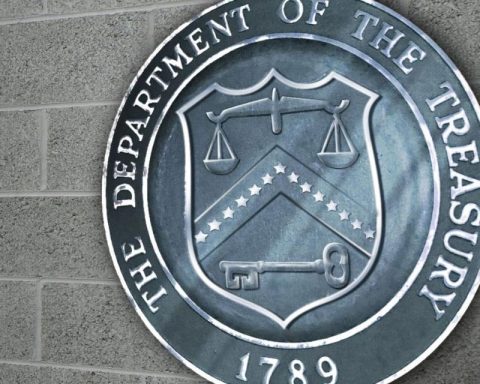Dozens of countries have tightened their sanitary restrictions in an attempt to stop the expansion of omicron, the new variant of SARS-CoV-2, whose global risk has been evaluated as “very high”, warned the World Health Organization (WHO), this Monday. In addition, the WHO urged countries to improve their surveillance efforts to understand the coronavirus and its variants.
According to the WHO, countries that have the capacity should carry out field and laboratory investigations to understand much more the characteristics of omicron, detect its circulation and report it, he indicated in a technical document.
Nicaragua was the last country in Central America –November 17– in confirming the circulation of the four variants of concern (VOC) of SARS-CoV-2: alpha, beta, gamma and delta.
The epidemiologist, Leonel Argüello maintains that the Ministry of Health (Minsa), through the National Center for Diagnosis and Reference (CNDR) has the capacity, equipment, laboratories and experience to identify the possible presence, now, of omicron, but that The decision responds to a “political will”, which implies that the information is shared with the population.
Given the appearance of the new variant, Argüello considers that Nicaragua “It is at more risk than the rest of the countries” because the same Government promotes contagion instead of prevention.
Ómicron, reported to WHO on November 24 from South Africa, has generated a global alarm due to the more than 30 mutations – unprecedented – in the spike protein, which facilitates the entry of the virus into the cell, and suggests that it is more transmissible than the other variables of concern or that it may be resistant to the efficacy of vaccines. However, more scientific research is required to confirm this.
The WHO indicates that some of the mutations present in omicron, “are worrisome due to their potential impact on the trajectory of the pandemic”, and the “preliminary evidence suggests that there may be an increased risk of reinfection ”, In other words, people who became ill with covid could be reinfected more easily by the variant, however “the information is limited,” he clarified.
Argüello considers that the duty of the health authorities is to inform the population about the circulation of the variants, and by not doing so, it exposes them to a greater risk of contagion. This happened with the presence of the delta variant, which independent doctors had already noticed changes in the symptoms of patients and severity of the disease that related to this strain, before the Minsa recognized that it was the predominant variant in the country.
Scientists study the omicron variant
The “substantial” uncertainty about the transmissibility of omicron, the potential immune escape – naturally or by vaccine – and the severity of the disease still await concrete answers. The WHO warned in the technical document, that “Depending on these characteristics, if there is another significant increase in covid-19 driven by omicron, the consequences can be serious.”
Increasing cases, independent of a change in severity, can place overwhelming demands on health care systems and “can lead to increased morbidity and mortality.” However, scientists continue to study the new variant to learn its true potential.
It is not known if omicron is more transmissible compared to the other VOCs, including the predominant one in the world: delta, of which scientific studies indicate that a person infected with this strain can infect up to eight people. In South Africa, in the areas where the new variant has been detected, cases have increased, but epidemiological studies are being carried out to understand whether it is due to the new variant or other factors.
Agglomerations facilitate the appearance of variants
The massive activities that continue to be carried out by State institutions, contradicting the measures to prevent contagion of covid-19, facilitate the transmission of the virus and, in turn, the emergence of SARS-CoV-2 mutations.
“The more contagion there is, the more chances that the variant will appear. It is not that the omicron variant is imported from South Africa, it is that the omicron variant You may already be in Nicaragua as a result of these massive activities that guarantee greater contagion and, therefore, a greater probability that variables are created, ”said epidemiologist Argüello.
After more than four days that the WHO alerted on the identification of omicron, the Minsa has remained silent, without alerting the population to strengthen its biosafety protocols.
For his part, the Salvadoran epidemiologist, Alfonso Rosales, considers that if governments do not implement biosafety measures, there are two main effects: the first, that the virus circulates with more intensity, which translates into a greater amount of sick population, and therefore , more risk of death. The second, as the circulation of the virus increases, it has a greater capacity to mutate.
“If a new variant enters Nicaragua and Nicaragua lets it circulate, the chances that it will mutate again and acquire greater capacities are higher “, said the specialist Rosales.
The WHO insists that authorities should regularly communicate evidence-based information on omicron and other circulating variants and their potential implication to the public. It must be done in a timely and transparent manner, including what is known, what is unknown, and what you are doing.
At the same time, vaccination coverage should be strengthened “as quickly as possible”, with an emphasis on priority populations and those who have yet to complete the immunization schedule. However, the epidemiologist Rosales indicates that vaccination is one of the measures that must be accompanied by other biosafety actions to control the pandemic.
After the second wave of covid-19 that was caused by the circulation of the variants of concern, the Minsa reports a sustained decrease in the number of infections. The latest report published on Tuesday indicates that in the previous week there were 102 new infections and one death from covid-19. In total, the Minsa has identified 17652 infections and 213 deaths in 20 months of the pandemic.


















